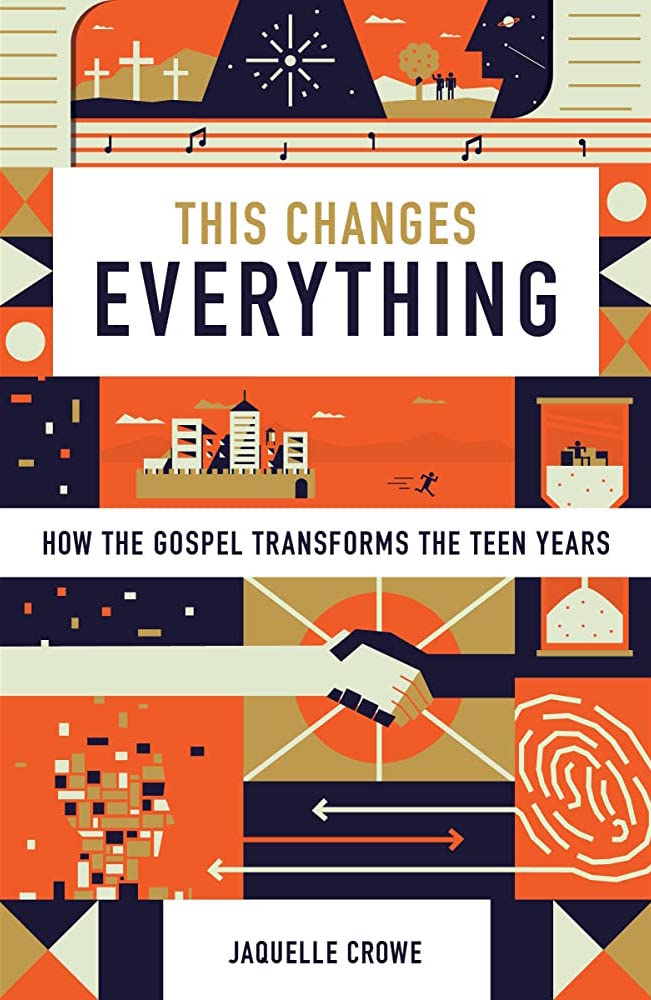Less than a century ago, teenagers didn’t exist. We might have been men and women ‘in our youth,’ but today’s stereotype of the moody, fiery, rebellious ‘teenager’ wasn’t around.
In that ‘pre-teen’ world, dating at the age of twelve didn’t exist. Nor did Hollywood, or ‘Eshays’, or juvenile prison, or Cardi B. But things changed as time went on: Hollywood grew and shaped our culture; social media took over the world; computers shrank from machines taking up entire rooms to become little black devices. Teenagers evolved. And all while, the Christian worldview and way of living declined.
Teenagers evolved. And all while, the Christian worldview and way of living declined.
And so this is the world teenagers like me find ourselves in: attending high school while being pressured by our culture (and some of our peers) to date, to swear, to take an interest in drugs and other vices that completely contradict Christianity. No wonder so many us—including Christian teens—feel lost.

This Changes Everything: How the Gospel Transforms the Teen Years
Jaquelle Crowe
This Changes Everything: How the Gospel Transforms the Teen Years
Jaquelle Crowe
Enter the book This Changes Everything, by Jaquelle Crowe.
This book is exactly what 21st-century teenagers need. Jaquelle discusses so many important things—from how expectations are set so low for us, to how being a teenager can be a time for spiritual growth (rather than spiritual slacking off).
The book is divided set into 8 sections, each of which explores how to live for Jesus and why it’s so important for:
- Our identity;
- Our story;
- Our community;
- Our sin;
- Our Disciplines;
- Our growth;
- Our time;
- Our relationships.
As she deep-dives into each of these topics, Crowe encourages us to love Jesus, even though our world doesn’t worship him.
Why Should Teens Love Jesus?
A question many teens ask is: Why should we love Jesus? Crowe offers 8 reasons:
- God is Creator, who gave us life.
- God is Savior, who redeemed our souls.
- God is Refuge, who relieves our burdens.
- God is Father, who forgives our sins.
- God is King, who demands our service.
- God is Peace, who satisfies our longings.
- God is Wisdom, who guides our steps.
- God is Transformer, who totally, irreversibly, and utterly changes our lives.
Crowe helps struggling teens. She says: ‘God is peace … He’s the only one who will truly satisfy us.’
We all know that depression and anxiety levels for young people are skyrocketing. There is much that today’s teens are going through, right? The youth of today are searching for satisfaction. Crowe helps struggling teens. She says: ‘God is peace … He’s the only one who will truly satisfy us.’ She argues that no matter what things we race after in life, time will run out. All the time that we spent working to make good, comfortable lives for ourselves will be lost because death comes for us all. The only thing that ultimately matters is what we’ll do in the scheme of our eternity.
But we’re only young, so where do we start?
How and why do we start living a godly spiritual life? How do we start living the life that God wants us to live? How do we start evangelising to others? How do we combat sin?
Crowe goes on to answer all of these questions.
Developing godly spiritual disciplines in our life is one answer. She provides a brilliant metaphor that teens can understand (given our experience with good and bad teachers 😉 ):
Let’s pretend there are two teachers at your school. I’ll call one Miss Rose. The other will be Mr Smith. Miss Rose has known you since you were born and is part cheerleader and part grandma to you. She’s a gracious grader, but she genuinely wants you to learn, and invest hours into teaching you everything you need (and want) to know. Mr Smith, on the other hand, hates teaching you. You annoy him by breathing. He’s constantly cranky, unfairly critical, and irrationally harsh. His class is miserable.
She continues:
Before we can look closer at how to practice the spiritual disciplines as teenagers we have to understand something very important—why we practice them. We don’t do them to be saved; we do them because we are saved. We don’t do them to earn gold stars in God’s grade book; we do them to obey His clear commands. We don’t do them just because we have to. That’s what motivates students in Mr Smith’s class. It was all duty and frustration-filled drudgery.
She concludes:
[But] we’re in Miss Rose’s class now. We do them because we get to. We practice the spiritual disciplines because we are motivated by abundant affection for Christ and a thriving desire to grow in him. We do them because of the gospel.
Basically, what she was saying is that Miss Rose represents God, except God is infinitely better and infinitely more loving. We don’t do the work because he hates us and we’re forced to (like in Mr Smith’s class), but instead, because God loves and cares for us infinitely more than we can imagine.
Often as teenagers, we’re scared of doing evangelism, and/or just don’t know how. I won’t spoil too much of the book, but Crowe writes well about how to evangelise. She reminds us that we’re just part of God’s big story:
Don’t put the pressure on you. God changes hearts. He works through our mistakes and our blunders. He uses it for his glory and is pleased by our efforts. He is the Saviour. After all, it is his story.
Crowe pinpoints how important teenagers are to the church, even if the church itself doesn’t recognise our importance. Sometimes we may feel overlooked, but we mustn’t let this curb our enthusiasm for sharing the gospel with others:
As teenagers, we have a unique opportunity for evangelism with the people we know. We have teammates and coworkers, teachers and classmates, fellow club members and online friends. We know people our pastors or parents will never have the chance to share the gospel with. Those individuals are our God-given gospel windows. We don’t want to miss them.
Wish List
While this book was one of the best Christian books that I’ve read, there were a couple of other topics I wish she’d covered.
Church Youth Groups
Although I realise a short book can’t have everything, I think This Changes Everything could have talked about how youth ministry is also important and how we can get involved.
I think being part of a youth group is one of the best benefits a Christian teenager can have in the 21st century. Youth groups are important because they address many of the questions that teenagers ask, and that perhaps the church wouldn’t otherwise spend as much time on.
Inviting Friends to Church
I think it would have been useful to include some tips on how to invite friends to church. I think that’s something that the whole church struggles with, not just teenagers.
I would like to have been given some more gospel-sharing ideas, and maybe some tips on how to live a gospel life on social media (inc. what you should and shouldn’t post). I think this area is a pitfall and an opportunity for Christian teenagers.
Much Needed
Overall, though, This Changes Everything is a much-needed book for teens today. Crowe’s book—for teenagers by a teenager—gives a no-nonsense guide to living for Christ. She provides diagrams and other gospel-centred external resources in the book as well. I would personally recommend this book to any fellow Christian teen. I wouldn’t say this is quite the book to give teens who aren’t Christians yet, or who are suspicious of Christianity, but it’s a good book for teens who want to know how to follow Jesus.









